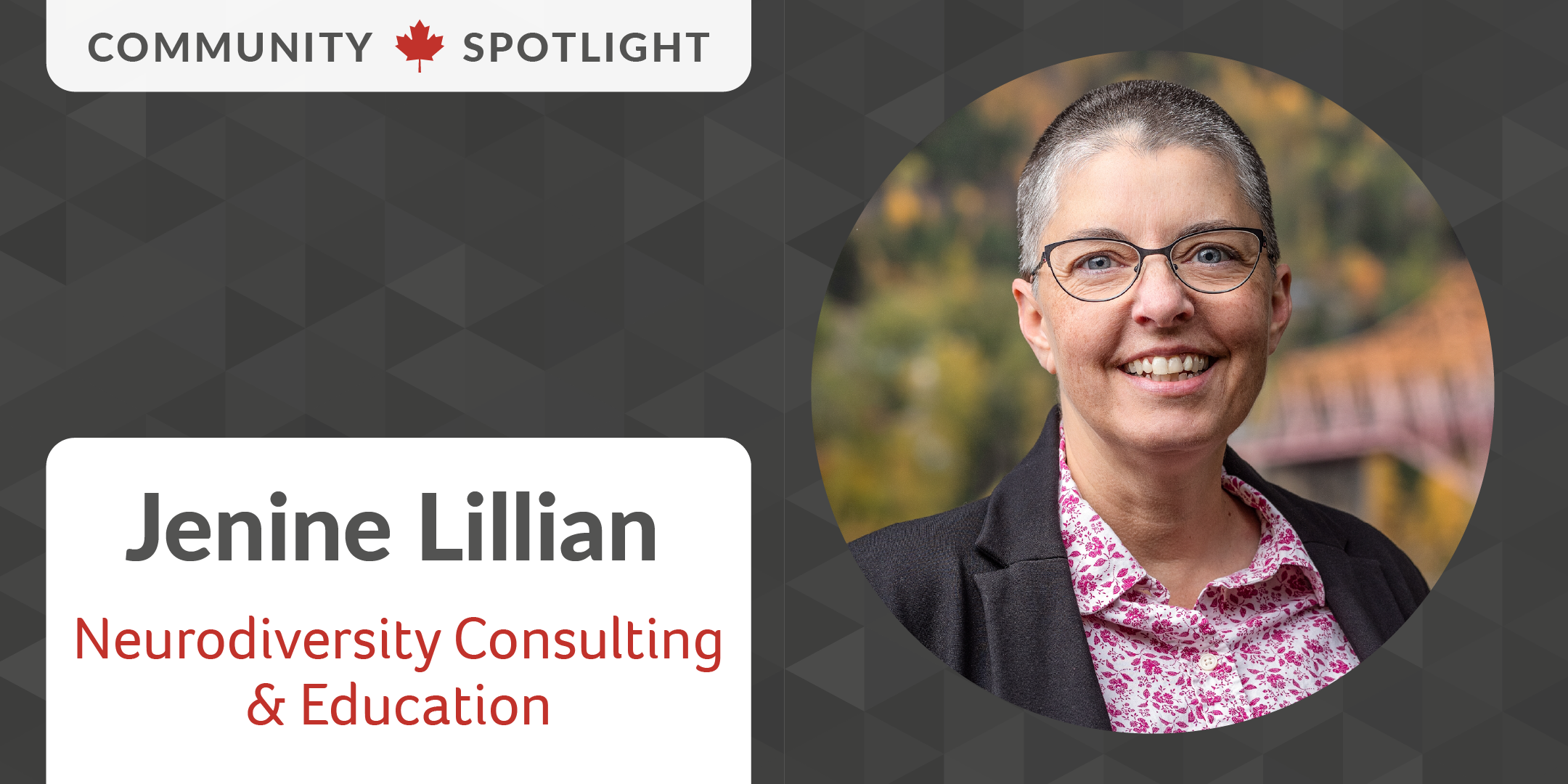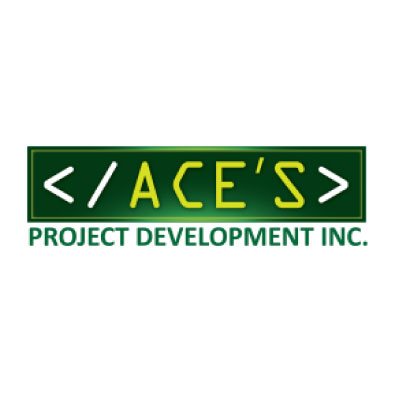Community Spotlight: Jenine Lillian Neurodiversity Consulting & Education
An important part of IWSCC’s mission of success and inclusion for Veteran-Owned and Disabled-Owned businesses is to promote and magnify the successes, the accomplishments, and the unique qualities of the businesses we were founded to support.
The Community Spotlight Project is dedicated to providing a platform for our suppliers to express themselves and to share their passion, their ambition, and their ingenuity with the IWSCC community and beyond.
Today, we’re hearing from IWSCC Certified Disabled-Owned Supplier Jenine Lillian.
Do you believe the Canadian marketplace is ready to include business owners with disabilities?
There has never been a better time to be an entrepreneur and many of us are disabled, which teaches us to be excellent problem-solvers and innovators. Organizations such as IWSCC is making huge inroads into the conversations and complex factors involved in supply chain transparency and inclusivity. We are stronger together.
Why did you decide to become an entrepreneur?
Receiving my autism diagnosis at 51 was both a revelation and a relief. It made sense of a lifetime of struggles and strengths. As someone with three decades of experience in teaching and training—and a background as an MLIS librarian—I recognized an urgent need for evidence based, advocacy for neurodivergent adults. Many face a confusing and exhausting path toward recognition, understanding, and accommodation. I started this business to address those gaps with clarity, compassion, and advocacy—building community, challenging stigma, and making the world more accessible for people like (and not like) me.
Does being Disabled-Owned contribute to your success?
Absolutely. My lived experience as a neurodivergent individual offers authentic insight into the challenges and strengths of our community. This perspective enables me to connect deeply with clients and design services that genuinely address their needs. It also allows me to challenge misconceptions and advocate for systemic change from a place of personal understanding.
What makes your business unique?
My business blends lived experience with professional expertise and integrates the
authenticity, humour, and compassion that is at the core of how I interact with the world.
Receiving an autism diagnosis at age 51 gave me insight into the multiple barriers
neurodivergent adults face, while three decades in teaching, training, and my MLIS librarian
background provide depth and credibility. I offer practical, evidence-based training and
advocacy, delivered with empathy and inclusivity in mind. Clients note that my approach
combines vulnerability, validation, and empowerment, shifting the focus from “what’s wrong” to what’s possible.
What inspires you?
I’m inspired by people who are willing to show up as they are. Neurodivergent adults who keep going in a world that often misunderstands them. Entrepreneurs who build businesses that reflect their values instead of hiding who they are. I’m also inspired by the chance to keep learning and teaching — after more than 30 years in classrooms, training rooms, and libraries, I know that information can change lives. What keeps me going is knowing that every conversation, workshop, or resource I create can make someone feel less alone and more capable. And, that by being myself, I can more fully connect with others and be uplifted by them as well.
Receiving my autism diagnosis at 51 was both a revelation and a relief. It made sense of a lifetime of struggles and strengths. As someone with three decades of experience in teaching and training—and a background as an MLIS librarian—I recognized an urgent need for evidence based, advocacy for neurodivergent adults.
What does success mean to you?
The most common successes I experience are moments in conversations with ND adults when they start to see their unique skills and perspective as gifts; when they feel less alien and less alone; when we laugh about how “special” we are and how that’s a great thing.
For me, success isn’t about numbers or titles—it’s about connection. It’s using my 30+ years of experience in teaching, training, and librarianship, along with my lived experience as a late-identified autistic person, to help others feel seen and capable. When someone tells me a workshop gave them language to understand themselves (or those in their circle of care), or that a coaching session finally made a complex application process accessible, that’s success. It means I’ve helped dismantle some of the myths and misinformation and built a space where people can show up as they are.
Success is when the work creates community, validation, and the confidence for neurodivergent adults to thrive.
What does equality in the Canadian marketplace mean to you?
Equality means ensuring that neurodivergent individuals have equitable access to
opportunities, resources, and support. It’s about creating inclusive environments where
diversity is celebrated, and everyone has the tools to succeed. This involves not only removing barriers but also actively promoting understanding and acceptance.
What are you most proud of since starting your business?
I’m most proud that people say my work feels “personal,” “affirming,” and “deeply practical”— not just another generic webinar or “talking head.” These kinds of Google Business reviews and emails remind me that what I offer truly matters. This feedback tells me I’m supporting neurodivergent adults in meaningful ways: elevating their experience, challenging myths and misinformation, and pushing back against stigma. I’m not telling people what they should be—I’m helping them see that who they are is enough. That honest, lasting impact? That’s what I’m proud of. And, what makes it even better is that I get to be 100% myself while doing this work.
Are business communities like IWSCC important?
Embracing supplier diversity enriches the Canadian marketplace by introducing varied
perspectives and solutions. IWSCC’s commitment to supporting diverse entrepreneurs is
instrumental in driving innovation and inclusivity. By prioritizing supplier diversity, we move closer to a marketplace that truly reflects and serves all Canadians.
Do you have anything else you'd like to say about IWSCC or Supplier Diversity in Canada?
Recognizing and supporting Disabled-Owned businesses is vital for a truly inclusive economy. By valuing the contributions of disabled entrepreneurs, we challenge stereotypes and pave the way for a more equitable society. Success stories from these communities not only inspire but also highlight the need for systemic change to support diverse business ownership.
Who is Jenine Lillian?
Jenine Lillian (Jenine, they/them) is an #ActuallyAutistic neurodiversity consultant and educator, artist, writer, and librarian. For three decades, Jenine has taught information literacy and professional development in the United States and Canada. After receiving a very late-in-life diagnosis of Autism Spectrum Disorder (ASD) and Dyslexia, Jenine started their neurodiversity consultancy to raise awareness, reduce stigma and increase inclusion for neurodiversity and other invisible disabilities. Jenine is proud to be a certified supplier through both the CGLCC: Canada’s 2SLGBTQI+ Chamber of Commerce and the IWSCC: Inclusive Workplace and Supply Council of Canada. Connect and collaborate with Jenine by emailing info@jeninelillian.com
Jenine lives in the West Kootenays, BC, Canada where they can be found making art, talking with folks on sidewalks, birdwatching, building community through volunteering, and practicing self-care. You can connect with Jenine at info@jeninelillian.com and explore their website at www.jeninelillian.com.

IWSCC supports Veteran-Owned and Disabled-Owned businesses across Canada. You can learn more about becoming a Certified Supplier here, learn more about becoming an IWSCC Corporate Member here, or reach out to us directly at info@iwscc.ca







